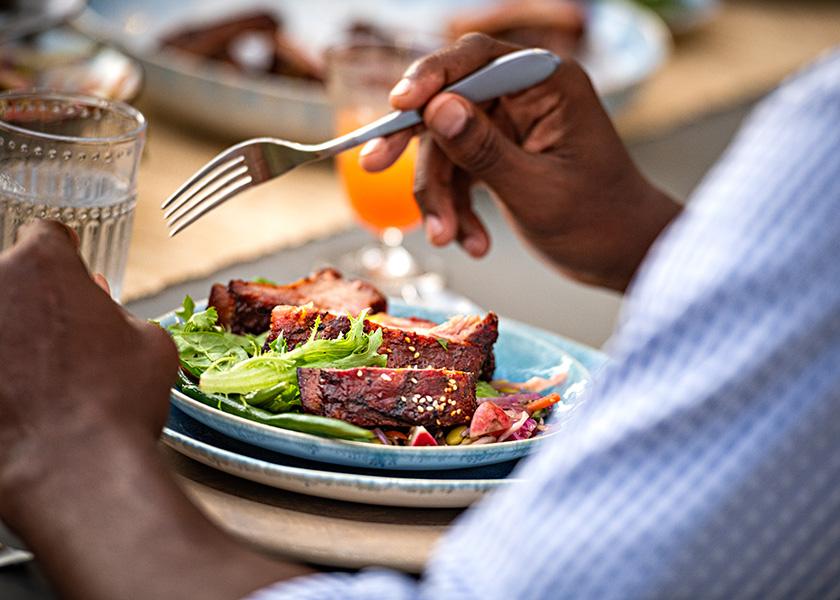Most People Think They Eat Healthier Than They Do

You are what you "think" you eat. A new study says that may not be a good thing for most Americans.
According to research presented at the annual meeting of the American Society for Nutrition, people are usually wrong when ranking how well they eat, particularly when they think their diet is healthy.
USDA and University of Central Arkansas researchers looked at data from 9,757 American adults who were asked to complete a food survey and rate their diet on a scale from "poor" to "excellent."
The researchers wanted to find out whether a single, simple question could be used as a screening tool for nutrition studies — to replace or complement the detailed dietary questionnaires commonly used in nutrition research, the American Society for Nutrition reports. Previous studies have found that self-rated health is a strong predictor of morbidity and mortality, but there is scant research on whether self-rated diet quality is predictive of the actual quality of one’s diet.
Researchers then evaluated participants' eating habits and graded them (from A to F) based on the Healthy Eating Index which assigns points for eating fruits, vegetables, whole grains and protein. It also gives points for avoiding processed foods, refined grains and sugar and saturated fat.
Results showed that 85% of participants inaccurately rated their own diet, almost all of them by ranking it as healthier than it really was, the American Society for Nutrition reports.
Lead author of the study Jessica Thomson, a research epidemiologist with USDA, said most adults overrate the quality of their diet, sometimes to a substantial degree.
Meanwhile, 71% of participants ranked their diet as good, very good or excellent. However, only 12% of the participants' diets ranked that highly in terms of "healthy eating." The study showed 70% of the participants' diets were given an F, but only 6% of people self-assessed their diet as such.
What's Missing?
Researchers said the difference between the ideal healthy diet and what people were actually eating was typically a lack of whole grains, greens, legumes, seafood and plant-based protein, and too much sodium and saturated fat.
But what they were getting right was the importance of protein.
Further research could shed light into what factors people consider when asked to assess their diet quality, Thomson said.
“It’s difficult for us to say whether U.S. adults lack an accurate understanding of the components of a healthful versus unhealthful diet or whether adults perceive the healthfulness of their diet as they wish it to be—that is, higher in quality than it actually is,” Thomson said in a release. “Until we have a better understanding of what individuals consider when assessing the healthfulness of their diet, it will be difficult to determine what knowledge and skills are necessary to improve self-assessment or perception of one’s diet quality.”
More from Farm Journal's PORK:







